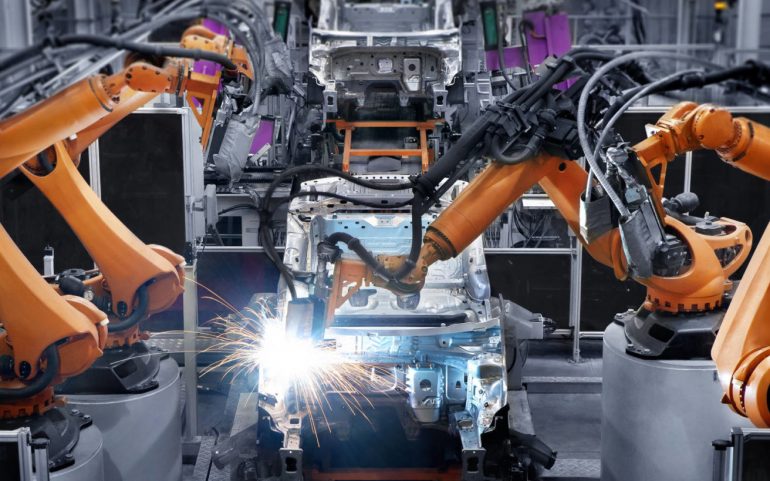Greece is one of the special cases in the world that lived its industrial era concentrated in three decades, mainly in the post-war years. The 70s, for example, were the springboard for the creation (or evolution as one gets it) of several smaller or larger scale production units.
By the mid-decade several crafts had evolved into light or heavy industry production units. The eyes of many investors were on this corner of Europe as they saw profitability and growth. Companies such as Piraiki Patraiki, Izola, Halyvourgiki, Softex and many others had made the country an investment destination.
However, the faster the development of emblematic companies that had developed industrial and factory activities and which became giants, the more quickly their end came to the final "padlock".
A typical example is its assembly plant Nissan on Volos. A model unit that for almost two decades gave breath and vision for Greece to acquire its own car industry. An opportunity lost in the 90s. The era of steady deindustrialisation of the country and the shift to practices and habits that would lead, mathematically, to the crash. Something that finally happened in the early 10s.
At the moment there is a mobility in the automotive sector and mainly in electronic vehicles as the Prime Minister Kyriakos Mitsotakis announced at a special event on Friday 5/6 that the government will subsidize with 100 million euros and for 18 months the purchase of new type cars.
This will cover 25% of the cost for 14.000 new cars. The benefit per unit will approach 10.000 euros, which will make electric cars more affordable in the middle income.
If you tell someone the name "Theocharakis" he will almost automatically answer you: "Nissan». In Greece, the famous Japanese car brand is inextricably linked to the name of the Theocharakis family.
The history of the Theocharakis group of companies begins with him Nikolaos I. Theocharakis. Nikolaos came to Athens at the age of 18. After returning to Greece from his military service, he worked as a taxi driver and a little later bought 3 buses. In 1924 he opened a shop selling spare parts and accessories, on Filellinon Street. Since then, it has started to enter the automotive industry.
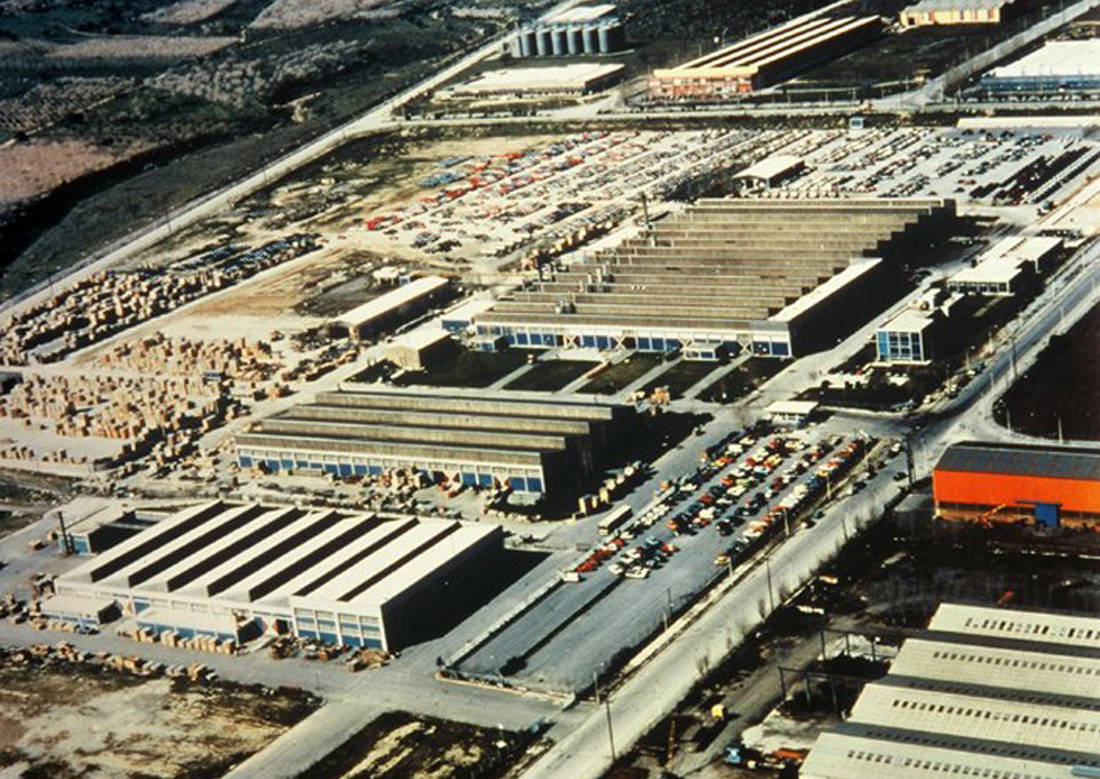
In 1937 he created a brake parts manufacturing unit in Egaleo. His sons, Ioannis and Vassilis, also took part in the operation in the late 40s. In the 50's it had two car shops, one on Veranzerou Street, in Athens and one in Piraeus.
In 1957 the businessmen acquired the Yokohama tire dealership. Two years later, Theocharakis SA was founded. Trade of Cars, Tires and Spare Parts.
However 4 years later and specifically 1961 was the milestone year. They took over the car dealership Datsun (today Nissan). This move was so pivotal as that dealership was the first of the Japanese car industry in Europe.
In 1976 the family Theocharakis will take the big step. He will establish TEOKAR Ltd. in order to produce vehicles. Initially, it manufactured the boxes of Datsun light trucks, at a unit at 268 Thivon Street in Egaleo. Two years later, however, the decisive step for the future of the automotive industry in Greece will be made.
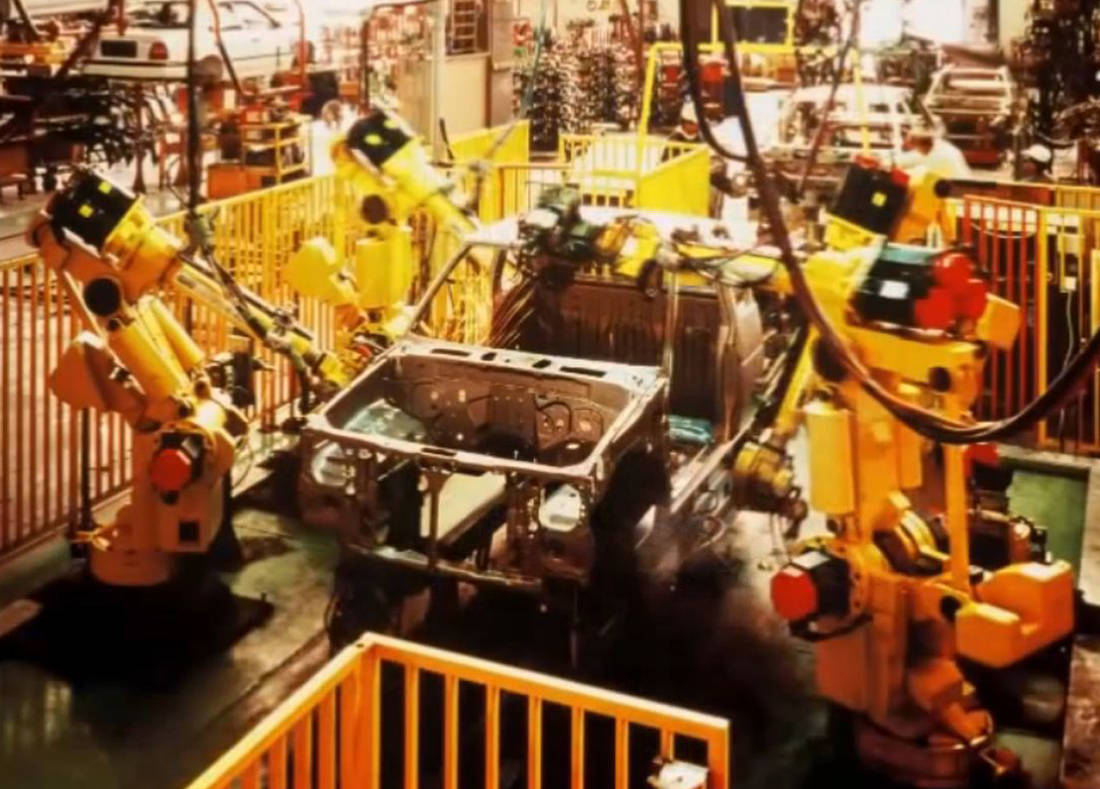
The plans for the construction of a large assembly unit began in 1978. At that time, TEOKAR Ltd. turned into a public limited company. The new facilities were founded in January 1979 in Volos, in an area of 264 acres.
Initially the factory occupied 16.500 sq.m. but later the facilities were gradually expanded to 35.000 sq.m .. Assembly began in February 1980 with the light truck Datsun Pick up and follow the passenger Datsun Cherry. 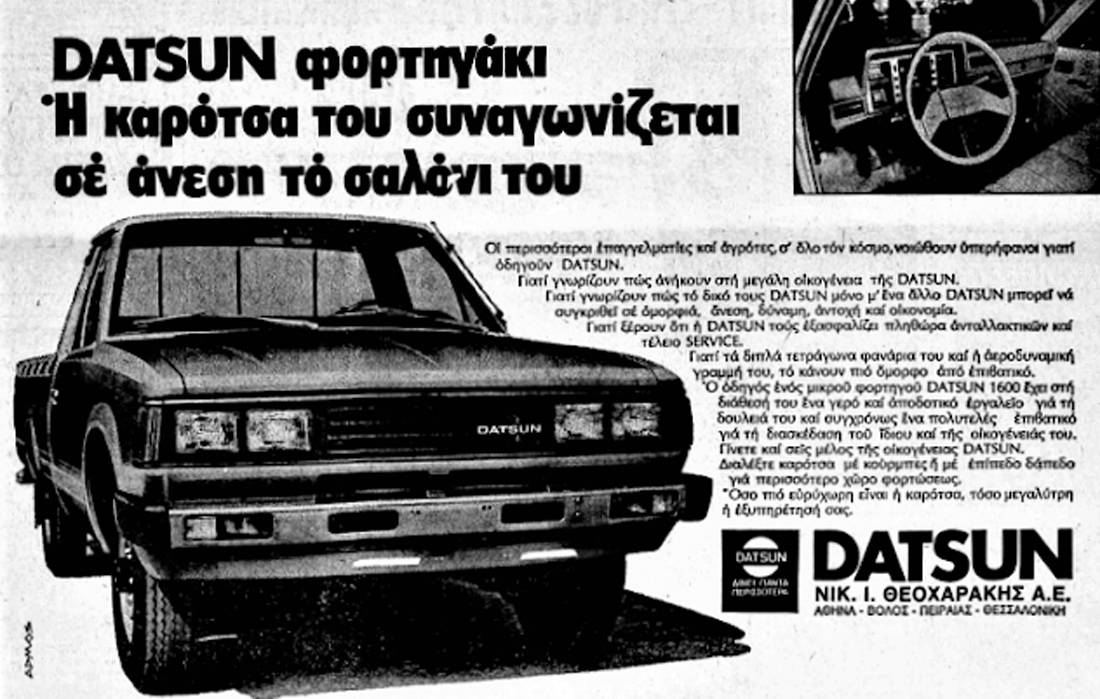
The Theocharakis family's proposal could ensure the Nissan Japanese's full establishment in the European market. With her consent Nissan, Volos was chosen as the headquarters of the assembly unit because it met a number of conditions, such as the existence of a port that ensured the import of components from Japan and an equal distance from the two important commercial centers of the country, Athens and Thessaloniki.
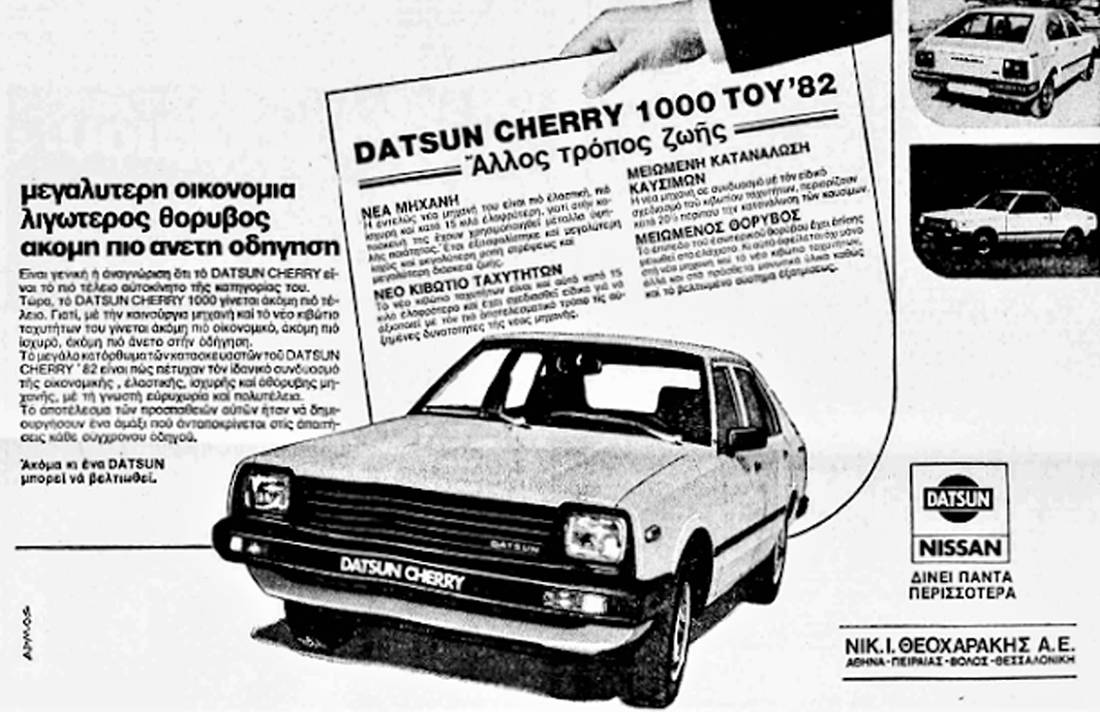
The state-of-the-art unit for the time performed assembly works of metal parts, painting, installation of decorative parts, assembly of the frame. In Volos, the final check was made for the necessary corrections if there were any defects.
In the first year of operation (1980) 4.685 cars were assembled, the vast majority of which involved light trucks.
It was in the mid-80s when the president of the group, Youtaka Koume, decided to visit the facilities of TEOKAR in Volos.
From the first moment he understood that the plan for consolidation in the European market through the junction in Magnesia would only proceed if there was a private will. After the first tour, the consultations started and there the Japanese asked to find out which of the attendees is the mayor of Volos, to be surprised to hear that the mayor decided not to attend the meeting. As if that were not enough for its president Nissan was not received by any government official, with the then Deputy Minister of Industry Vasso Papandreou, choosing not to meet with the representatives of the colossus.
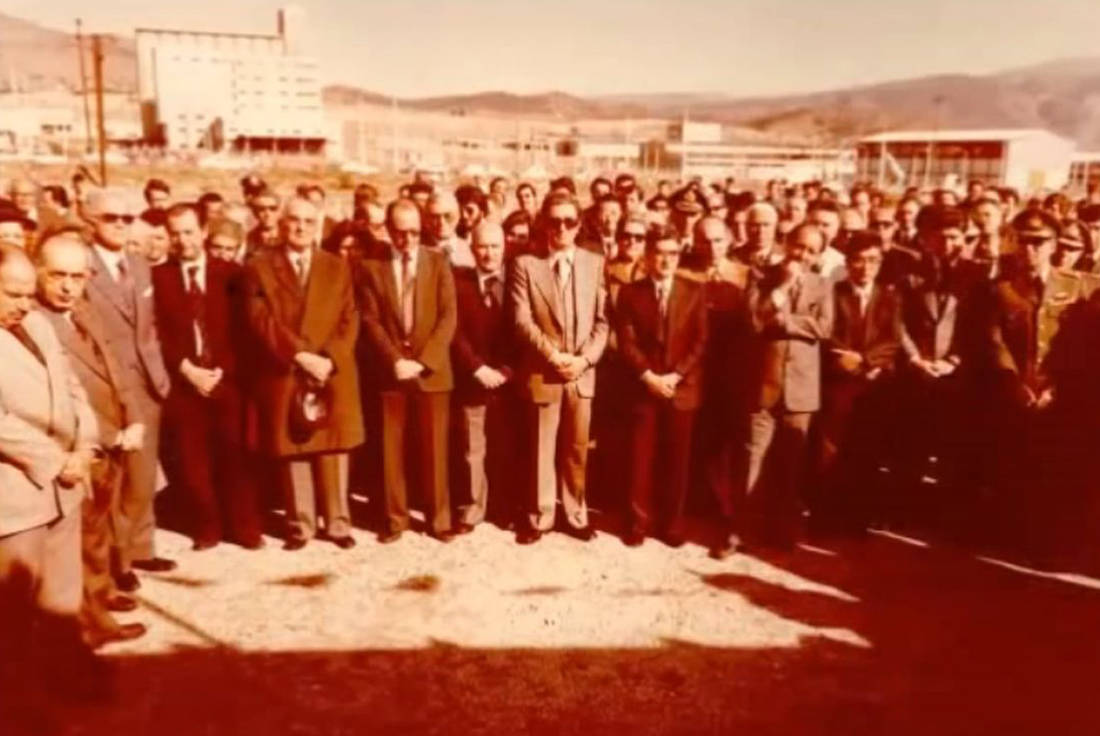
At the same time a visit of a politician to Volos makes a big impression. The same Margaret Thatcher with a number of British diplomats visited the facility as he wanted to take advantage of the Japanese plans for a huge investment in European territory.
On the 2nd day of the Japanese stay in Thessaly, 2 limousines of the English embassy appeared. The Prime Minister of the United Kingdom spoke with the Japanese delegation, which without delay decided to invest in Sunderland, where the Nissan unit still operates.
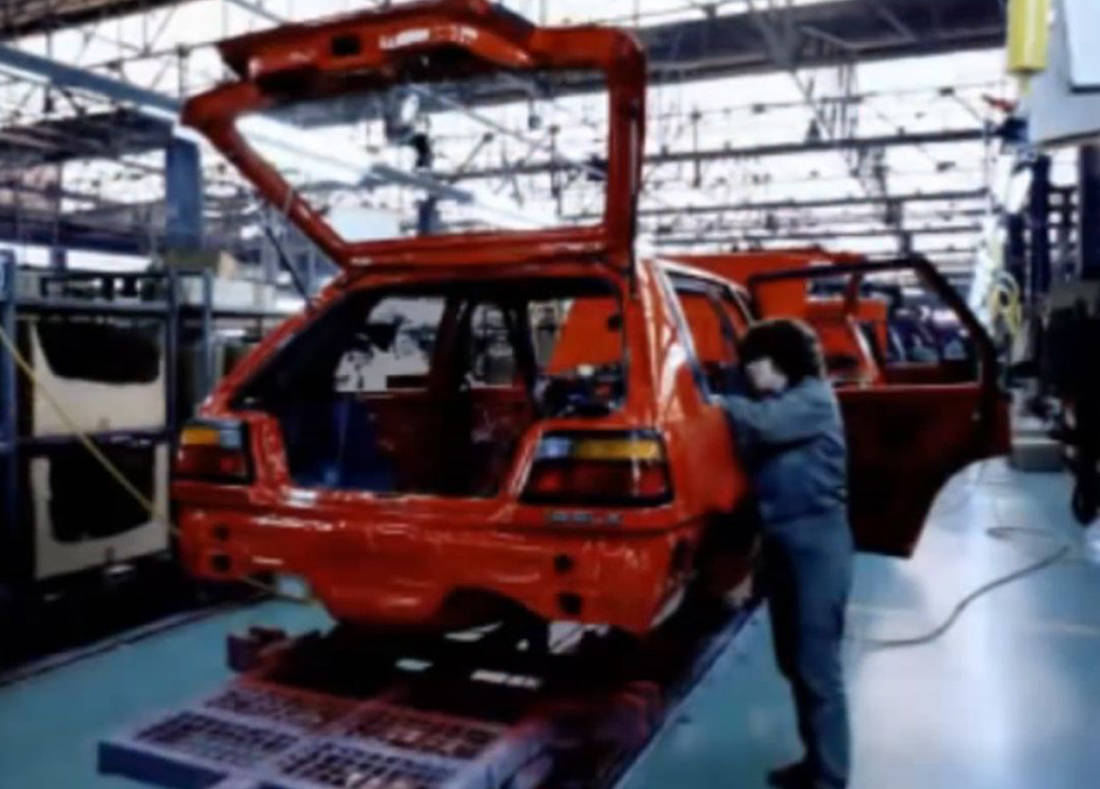
The then political leadership in Greece seemed to have no intention of laying rose petals on the Japanese giants within Greek territory. The opportunity to consolidate Greece as a strong player in the global car industry was lost.
The attitude of the state towards the Theocharakis group is also indicative. In the 15 years that the factory in Volos had assembled and marketed 170.000 cars, the company received only one order from the public for 70 cars that were sold to PPC and the police.
If we take into account that the Greek market was limited for the automotive industry and TEOKAR did not export, the reduction of turnover was inevitable. The company produced below its actual capacity - which amounted to 36.000 units in two shifts - because it had nowhere to sell the vehicles.
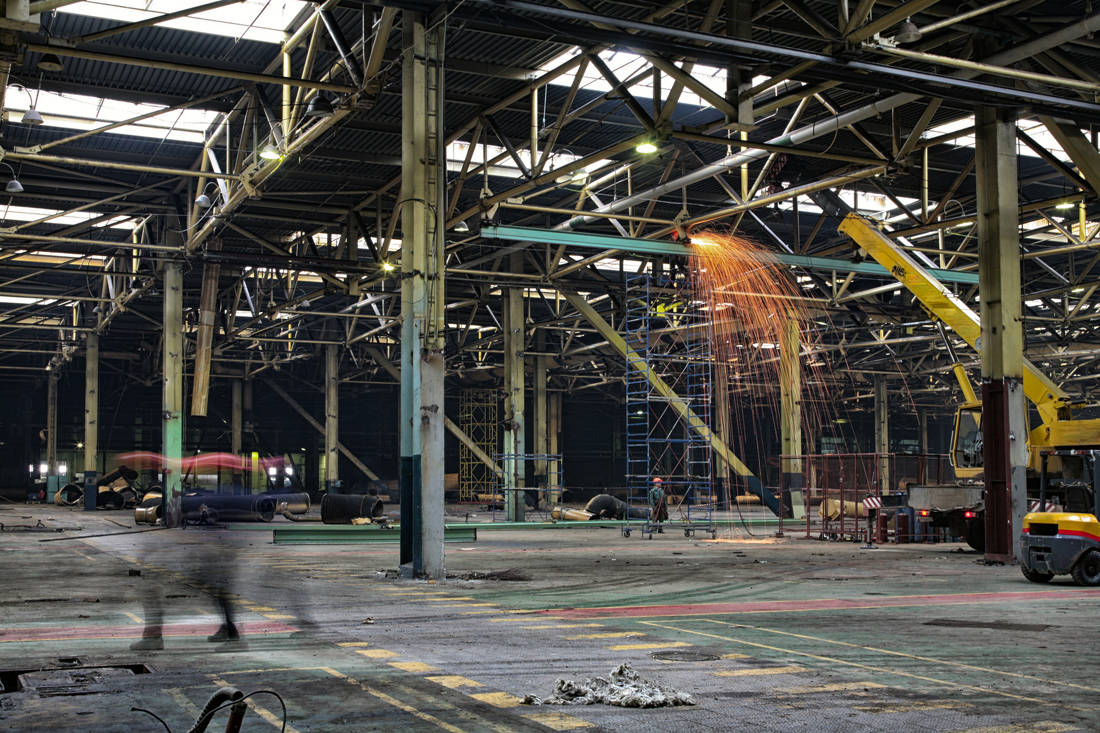
In the period 91-92 a legislation was adopted regarding the withdrawal of old vehicles. TEOKAR tried to adapt to the new increased demands but when it finally managed to reach the market standards, the government, in the middle of the orders, stopped the withdrawal without taking into account the preparations for adjusting to the increase in demand in which it had meanwhile the company proceeds.
When the withdrawal ended, he left the company with a stock he could not put on the market. In 1995 the titles of the end of an emblematic industrial unit in the Greek territory fell.
Theocharaki group continues its activities, especially in the distribution of a wide range of goods such as outboard engines, agricultural tractors, car batteries and much more, while in 1993 it began the marketing and installation of mechanical parking systems.
